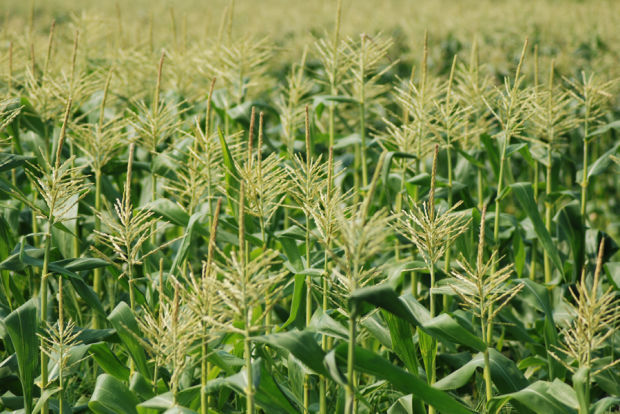LIHUE — New worker protection standards, tripling the cost to register pesticides and better data collection are just a few of the projects being launched by the state to address restricted-use pesticide exposure. “The state has three key areas of
LIHUE — New worker protection standards, tripling the cost to register pesticides and better data collection are just a few of the projects being launched by the state to address restricted-use pesticide exposure.
“The state has three key areas of focus which include environmental sampling, interagency emergency response exercises for pesticide incidents, and public health education and outreach,” said Scott Enright, chairman of the Board of Agriculture. “We have been working closely with the Department of Health and other state, county and federal agencies to get these initiatives underway.”
In a Wednesday joint news conference, the state’s Department of Health and Department of Agriculture announced the projects, many based on recommendations from the Kauai Joint Fact-Finding Report completed in May 2016.
A statewide voluntary Good Neighbor Program, which provides for outreach to neighbors within a 1,000-foot radius of a location before pesticides are sprayed, is one of the things that will be loosely modeled after Kauai.
That program will roll out in January 2017 and representatives from Hawaii Crop Improvement Association said the state’s seed industry has agreed to participate.
“Hawaii’s seed industry has been responsible stewards of Hawaii’s natural resources for 50 years. Their employees are farmers, neighbors, and parents who care about the well-being of their communities and the future of Hawaii,” said Bennette Misalucha, HCIA executive director.
Medical testing for individuals who work with restricted-use pesticide application will also be amped up, and there will be annual training and medical testing for applicators within the industry.
The requirement for buffer zones is another JFF recommendation that DOA took to heart.
“They’ll use a smart buffer zone and that’ll change depending on what the interface is,” Enright said.
DOH will also require pesticide usage to be reported every month, and that information will be made public on state entity websites.
“That was an original ask in Bill 2491 on Kauai, and that’s in place,” Enright said. “It’ll be in place for the rest of the state.”
The DOA pesticide advisory committee is being expanded and the charge to register pesticides will be tripled.
“That will give us additional revenue streams that we’ll get for the monitoring,” Enright said.
The JFF report highlighted the DOA’s backlog of 780 cases and Enright said the department has hired a deputy attorney general to solely focus on pesticide issues.
“Combined with our staffing, that brought us down to 150 active investigations open at any time,” Enright said.
The entity’s lab was also backed up, by about 200 cases, and DOA has purchased lab equipment that has allowed them to close that gap.
“We’re now in real time so we can continue to stay on top of our investigations,” Enright said.
The Hawaii Department of Agriculture has contracted the U.S. Geological Survey to conduct a comprehensive pesticide surface water quality monitoring project over two years. The $500,000 study is underway, and the Department of Health is providing technical and scientific assistance.
Surface water on Oahu and Kauai will be sampled for pesticides before and during storm events to evaluate if pesticides are moving offsite at unacceptable levels. Different land uses including urban, rural, and agricultural will be evaluated. Interim results will be released after the first year of the project.
Public health education and outreach is another key area that has been identified by the state agencies. A team from the Department of Health team met with Kauai physicians in August to resolve birth defects registry discrepancies, which the Joint Fact Finding Report noted.
Also on the agenda are outreach and education activities for physicians and other healthcare professionals to recognize and manage pesticide incidents. A children’s environmental health symposium on Oahu is planned for March 2017.
“A strong interagency approach will ensure greater success in resolving community concerns with effective and science-based measures,” said DOH Director Virginia Pressler.
The Department of Health is also working with the Hawaii Poison Center to offer Hawaii-specific information on how to report and respond to pesticide exposure for consumers through a free hotline service.
Since the majority of pesticide exposures reported to Poison Centers nationwide and the Hawaii Poison Center occur in the home and not from large-scale agricultural incidents, the Department of Agriculture will re-start their “Pesticide Poisoning Prevention Services for Households” outreach program to educate families and communities about how to better protect their children and how to reach out for help in the event of potential exposure.


